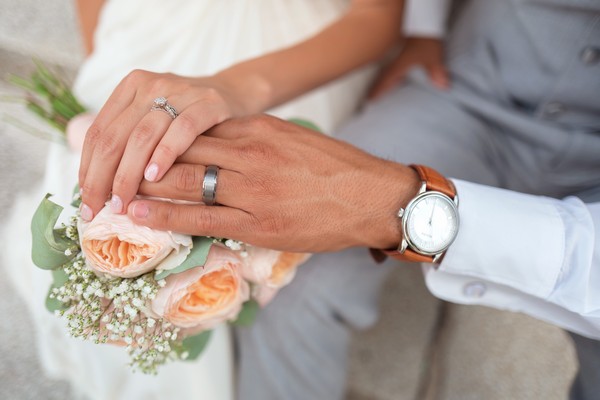Marriage is a significant institution in Islam, and the question of whether a Muslim can marry a non-Muslim is an important one. Islamic teachings offer guidance on this matter, and it’s essential to understand the principles and conditions associated with interfaith marriages in Islam. In this guide, we will explore what Islam says about marrying a non-Muslim.
1. The General Principle
The Quran, the holy book of Islam, generally encourages Muslim men and women to marry fellow Muslims. In Surah Al-Baqara (2:221), it is stated: “And do not marry polytheistic women until they believe. And a believing slave woman is better than a polytheist, even though she might please you.”
2. Marriage to People of the Book
While the Quran advises against marrying polytheists, it makes an exception for people of the book, which includes Jews and Christians. In Surah Al-Ma’idah (5:5), it is mentioned: “This day [all] good foods have been made lawful, and the food of those who were given the Scripture is lawful for you and your food is lawful for them.”
3. Conditions for Interfaith Marriages
Islamic scholars have different interpretations of these verses, but many agree that a Muslim man may marry a woman from the People of the Book under certain conditions:
The non-Muslim spouse should be a chaste and pious individual who respects and supports the Muslim spouse’s faith.
The couple should agree on the religious upbringing of their children, often with the stipulation that they will be raised as Muslims.
The Muslim partner must remain steadfast in their faith and not compromise their Islamic beliefs.
4. Marrying a Non-Muslim Man
Islamic scholars hold differing views on whether Muslim women can marry non-Muslim men. Some consider it impermissible based on their interpretation of the Quran’s guidance, while others argue that it is allowed under specific conditions similar to those for Muslim men marrying non-Muslim women.
5. Seek Guidance from Scholars
Given the variations in opinions among Islamic scholars, it is advisable for individuals considering interfaith marriages to consult with knowledgeable religious scholars or leaders who can provide guidance based on their understanding of Islamic law and the specific circumstances involved.
6. The Importance of Communication
In any interfaith marriage, open and respectful communication between spouses is crucial. They should discuss and agree on how they will navigate religious differences, such as matters related to worship, holidays, and the upbringing of their children.
7. Respecting and Protecting Religious Identities
Both partners in an interfaith marriage should respect and protect each other’s religious identities and practices. This includes not attempting to convert each other but allowing each person to freely practice their faith.
FAQs about what Islam says about marrying a non-Muslim
Can a Muslim marry a non-Muslim in Islam?
Yes, in Islam, it is generally permissible for a Muslim man to marry a woman from the “People of the Book,” which includes Jews and Christians. However, there are specific conditions and guidelines to follow.
Can a Muslim woman marry a non-Muslim man in Islam?
Islamic jurisprudence generally discourages Muslim women from marrying non-Muslim men. Some schools of thought consider it impermissible, while others allow it under certain circumstances.
What are the conditions for a Muslim man marrying a non-Muslim woman?
The conditions for a Muslim man marrying a non-Muslim woman in Islam often include the woman being from the “People of the Book,” her willingness to practice her own faith, and her agreement to not hinder her husband’s practice of Islam.
Are there any restrictions on marrying non-Muslims in Islam?
In Islam, it is typically discouraged for Muslims to marry polytheists or atheists, as there may be a significant difference in religious beliefs and values.
Is it better to marry a fellow Muslim according to Islamic teachings?
While it is not obligatory, Islamic teachings generally encourage Muslims to marry fellow Muslims, as it can help in maintaining a harmonious family life and a shared commitment to faith and values.
Can a non-Muslim spouse convert to Islam after marriage?
Yes, a non-Muslim spouse can choose to convert to Islam after marriage if they do so willingly and genuinely. Islam emphasizes free will in matters of faith.
Are there any challenges when a Muslim marries a non-Muslim?
Marriages between individuals of different faiths can bring about challenges related to religious practices, family dynamics, and cultural differences. Open communication and mutual respect are crucial to addressing these challenges.
Conclusion
Islam provides guidance on the permissibility of interfaith marriages, particularly when it comes to marrying people of the book (Jews and Christians). However, conditions and interpretations may vary among scholars and Islamic schools of thought. It is important for individuals contemplating interfaith marriages to seek religious guidance and engage in open communication with their partners to ensure a harmonious and mutually respectful marriage that adheres to Islamic principles.


